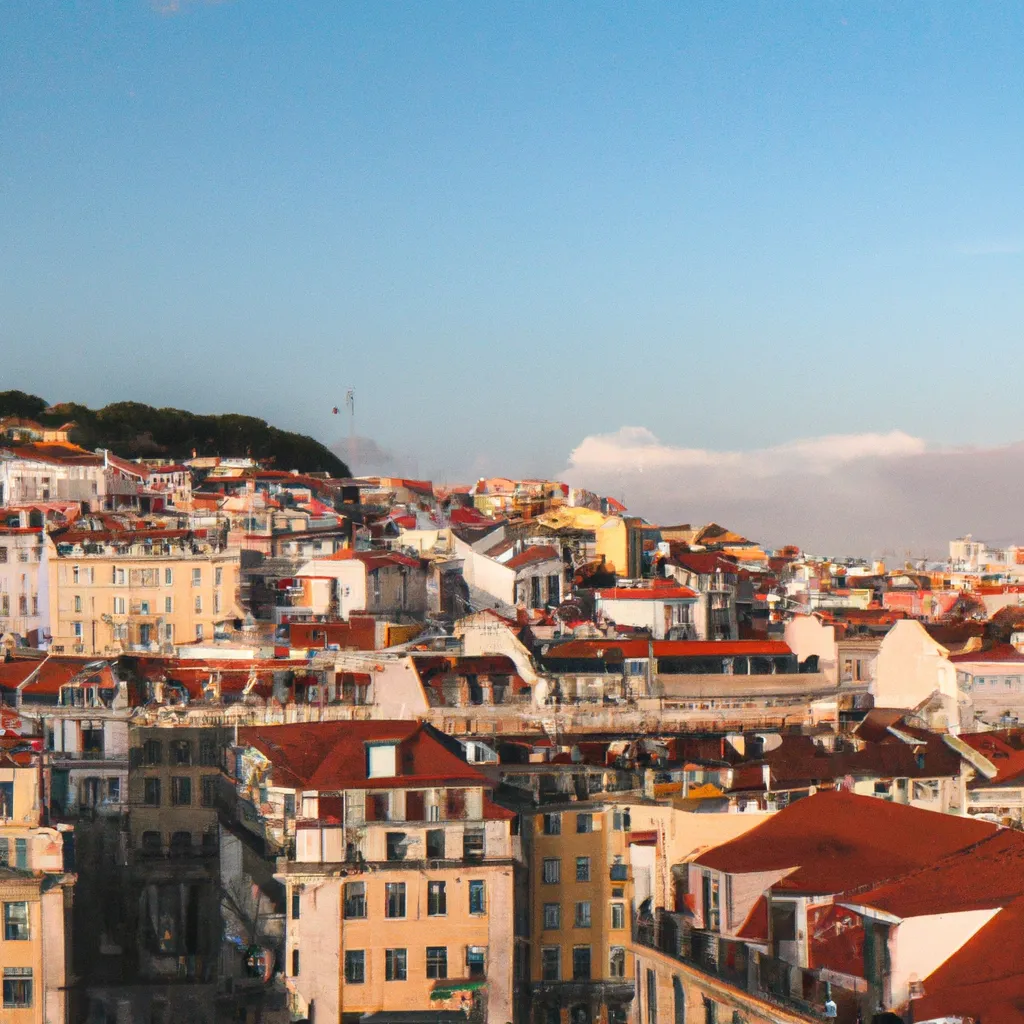Locking out wealthy foreign buyers is not helping Portugal, with Lisbon house prices rising, overtaking Milan, Madrid and Berlin.

After Portugal attracted wealthy foreigners with investment incentives, the government is finding it hard to stem a buying fever that is pushing home prices to unprecedented heights. The cost of apartments in Lisbon rose 5.8 percent in November to a record 5,426 euros ($5,963) per square meter, according to data from Idealista. That's the second-highest increase in Europe after Athens, the hottest real estate market among major European cities tracked by Bloomberg.
After nearly 30% growth over the past five years, the cost of residential real estate in Portugal's capital exceeds prices in Milan, Madrid and Berlin. That puts new housing out of reach for most Lisbon locals and shows how' 'supply often exceeds interest rates when setting prices.
The Portuguese government has begun to change its policies, ending its golden visa program and approving a plan to cut tax breaks for new residents. But the sunny climate and prices half the size of Paris and Zurich are having little impact on demand. "Despite these changes, we are seeing an increase in inquiries from our foreign clients," said Paulo Silva, head of real estate consultancy Savills in Portugal. "There simply isn't enough housing to meet demand, even with the slowdown in sales. "
While the end of the era of cheap money has affected purchasing power across Europe, a lack of supply is affecting' 'prices in many cities. Of the ten markets tracked by Bloomberg City Tracker, six are rising. Athens is up nearly 12% year-over-year, Stockholm is up more than 5% - for six months in a row - and prices in Madrid and Milan are still up steadily more than 3%. Paris performed the worst, down more than 6%.
To capture the latest housing market trends in European cities, Bloomberg compiles data from a variety of sources. Some of the data are rates and indicative levels, while others are official figures on transactions.
Lisbon used to be a dormant development with numerous old buildings, but after the completion of the international credit bailout in 2014, it became a hot investment destination. At the time' 'The government abolished rent controls and introduced a "golden visa" program - the ability to obtain residency in exchange for a property investment worth 500,000 euros - as well as tax breaks to attract new residents.
Shortly after, thousands of foreign buyers descended on Lisbon in search of bargains during the country's recovery from the financial crisis. Among them was Swiss billionaire Claude Berda, founder of French broadcaster AB Groupe.
14 May 2025
14 May 2025
14 May 2025


"We were taking selfies with the Tagus River in the background when we noticed a small advertisement that said '\'for sale'\'," said the 'Cardoso Botelu. "We shook hands, and that's how it all started. "
They created Vanguard Properties, headquartered in Lisbon, and have since developed nearly a dozen residential buildings in the city of half a million people. Demand has been so strong that they have often sold out before construction is even completed.
Cardoso Botelu says the long wait for building permits - eight years on one of his sites - has led to a severe housing shortage. The unnecessary delays mean Vanguard has no apartments for sale for next year, after they handed over 500 apartments in the last two months - almost half of which went to foreign buyers.
In 2022, the amount of affordable housing in Portugal reached' 'the lowest level in 15 years, according to Confidencial Imobiliario, a foundation that collects data on the real estate market. Social housing accounts for just 2% of the total - one of the lowest figures in the EU.
Meanwhile, the average price of a new home in Lisbon has overtaken Dublin and Brussels, according to Deloitte's 2022 index. For many Portuguese families, whose salaries are among the lowest in Western Europe, the dream of buying a home has been replaced by expensive and low-quality rentals in remote suburbs.
The trends in Lisbon show how difficult it is for governments to manage house prices. While demand can be fueled by incentives, supporting supply takes time and money, and getting the balance wrong' 'A community assistance center in the parish of Carcavelos near Lisbon. "It's mostly people who are working but can't pay for housing. "
The land is close to the elite Nova School of Business and Economics and an English school where tuition fees can exceed €1,000 a month. Growing inequality is causing tensions, and thousands took to the streets earlier this year to protest the housing crisis in Lisbon and other Portuguese cities - a reflection of frustration elsewhere.
The Portuguese Socialist government has responded by promising to increase the amount of affordable housing and end incentives for foreigners. Outgoing Prime Minister Antonio Costa says those programs contributed to speculation in the market' 'real estate. But getting rid of Portugal as a market may not be so easy. "After all, the warm climate, stunning beaches, lifestyle and relatively low cost of living will continue to attract interest from foreign investors," said Pedro Coelho, chief executive of real estate investment firm Square Asset Management.
Tags
Comment
Popular Offers

Subscribe to the newsletter from Hatamatata.com!
Subscribe to the newsletter from Hatamatata.com!
I agree to the processing of personal data and confidentiality rules of Hatamatata












